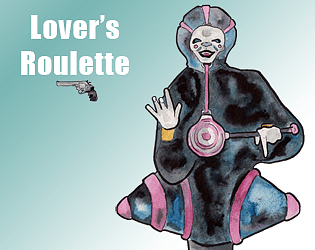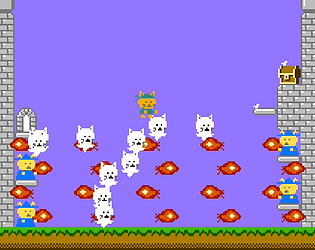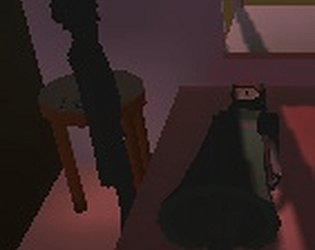This jam is now over. It ran from 2016-05-05 04:00:00 to 2016-05-21 16:00:00. View 12 entries

We are all terrible people. When we play video games, we behave like a bunch of sociopaths. We sit on our couches, we grab our controllers and we start the butchering. And as we bloodily reap hundreds of virtual lives, we blink unfazed and look for more.
Death is the currency of many games. Killing is one of the most common payoffs, and death is the ultimate consequence in a lot of core game loops.
In real life, killing is the ultimate taboo. In video games, killing is just the little dopamine hit that keeps us going. In real life, death is something that we fear, dread and avoid even thinking about. In video games, death can mean as little as pressing restart.
Games are tests, and they need to communicate success and failure. It's not surprising that most games have chosen the highest stakes form of success and failure - living and dying - as their metaphor for this. It works, and it can be fun, and it obviously doesn't make us horrible people.
But there are plenty of games that deal with death in more interesting ways, both in mechanics and content. Some games stray from the safe moral ground and justified player violence of killing Nazi zombies in self-defense. The Last of Us uses this to lead players to explore the morality of their choices. On the other hand, games like Grand Theft Auto, and even The Sims, prove that a lot of us can compartmentalize the virtual killing of innocent people enough to enjoy it and even find it funny.
Permadeath is an old, but increasingly common mechanic that ups the stake of player death. DayZ makes permadeath even more painful by making player progress incredibly difficult and devastating when it is lost. Upsilon Circuit makes death actually final, at least for each player, by allowing only one life per player in a persistent multiplayer world.
As well as experimenting with killing and death as mechanics, games are increasingly exploring death as a theme. Guacamelee gives the player the ability to move from the world of the living to the world of the dead of Mexican folklore, which is portrayed in a positive way as a vibrant, colorful place. In That Dragon Cancer, the player plays as a parent of a child with terminal cancer. In Return of the Obra Dinn, the goal of the game is to die well rather than to kill well, as the player carefully examines individual deaths so that they can be recreated.
This is Death Jam. Its charge is to explore the way we kill, die and experience death in games.
Thanks to Gabby DaRienzo for her amazing talk on Innovating Death Mechanics in Games at Indiecade East this year, which was the primary inspiration for this jam. She wrote an article on Death Positivity in Games, hosts a podcast on death in games and is working on a mortuary simulation game.
Submissions(12)
No submissions match your filter










